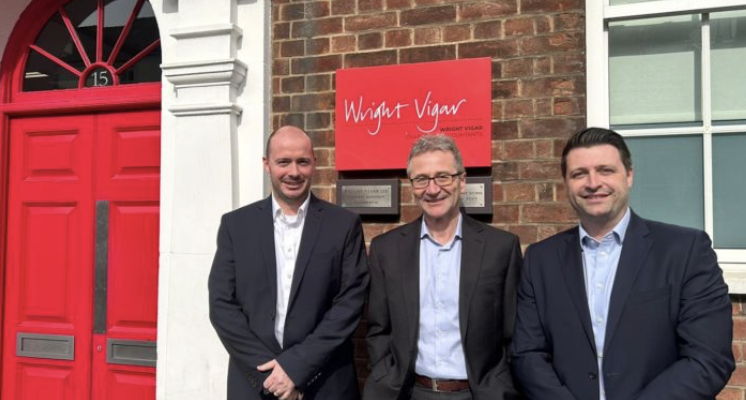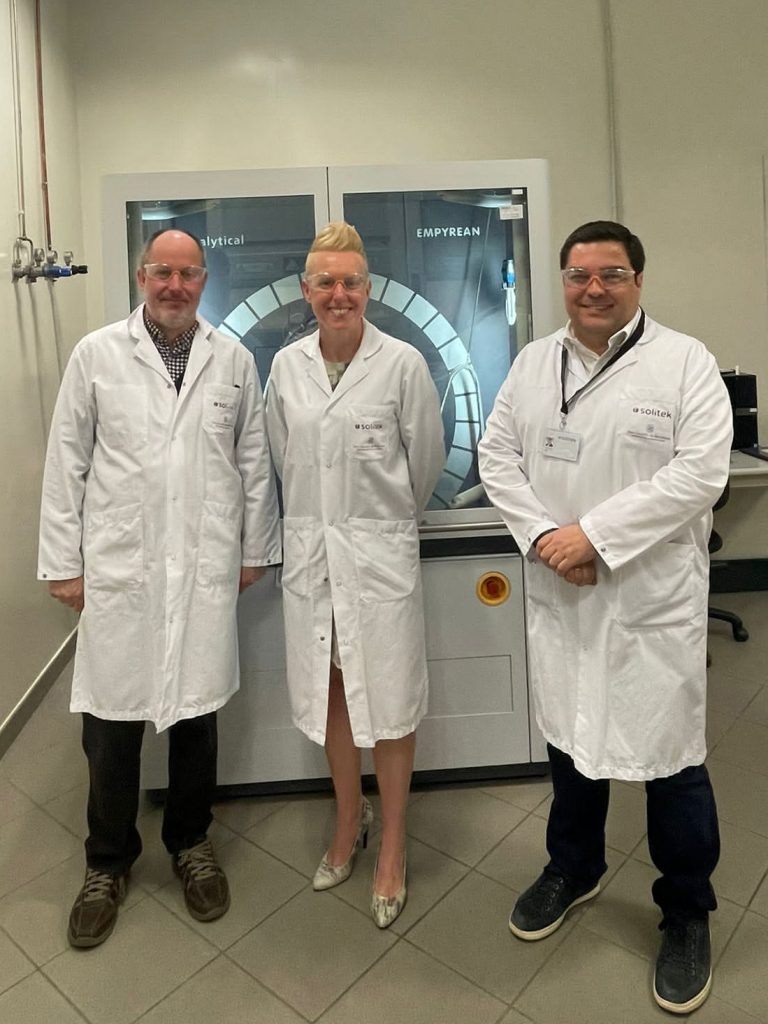Devolution plans win backing from East Midlands city and county councils
University of Leicester experts set to launch global health research project in Nepal
Professor Abhinav Vaidya, from the Kathmandu Medical College Public Limited, who is leading the Nepal arm of the project, said: “From Nepal’s perspective, the NIHR GHRC for MLTCs has a huge potential of refocusing the way MLTCs are dealt with at the moment – at population, primary care and policy levels.”
Speaking back in the Autumn, Professor Nishan Canagarajah, President and Vice-Chancellor of the University of Leicester, said: “Making a global impact from world-class research at Leicester is key to our mission. Our cutting-edge work across clinical medicine research, which is ranked second in the UK, is making a real difference in tackling health problems not only locally, but across the world. This funding provides a fantastic opportunity to work alongside colleagues in India and Nepal, provide places for candidates on Master’s, PhD and post-doctoral programmes and deliver short courses in areas that make a real difference to people’s lives and their wellbeing.” Professor Faith Osier, President of the International Union of Immunological Societies and Chair of the NIHR Global Health Research Centres Funding Committee, said: “These new Centres are truly ground-breaking – it’s the first time we’ve seen anything like this level of investment in non-communicable disease research in low and middle income countries. The potential for this truly equitable partnership working between researchers in LMICs and in the UK is immense and we’re so excited to see the advances that the next five years will bring.” Professor Kamlesh Khunti CBE, Director of NIHR ARC East Midlands and the Real World Evidence Unit and Professor of Primary Care Diabetes and Vascular Medicine at the University of Leicester, and Co -Lead of the award said: “It is an honour to be awarded this international funding as it allows us to make a difference globally. Research into this area is crucial as people in India are living longer with long-term conditions so it is vital to provide them with the right care, at the right time. To achieve this, healthcare workers need to be trained to deliver high-quality care which is of good value and based on evidence.” Professor Prabhakaran Dorairaj, the Lead of the proposed NIHR Centre and Distinguished Professor of Public Health at the Public Health Foundation of India, spoke about the significance of the investment: “We are very excited in winning this centre funding. This collaboration will help us in furthering our decade-old work on task shifting and using frugal digital technologies to redesign health systems for improving the health of Indians. Given the burgeoning chronic disease burden and multimorbidity, the research and capacity building to be undertaken by the proposed centre is timely and will have far reaching implications for India, Nepal and other LMICs facing similar health challenges.”East Midlands farmers urged to check insurance during lambing season
East Midlands business confidence up again
- East Midlands business confidence has risen for a second consecutive month from 18% to 23%
- Region’s businesses identify top growth opportunities as evolving their offer (46%), investing in their team (30%) and investing in sustainability (30%)
- Overall UK business confidence in March reached its highest level since May last year, with eight out of 11 regions and nations reporting higher levels of confidence than February
East Midlands Freeport given final sign off today
- The Ratcliffe-on-Soar Power Station site will focus on low-carbon energy and advanced manufacturing, and be redeveloped to become a zero-carbon technology and energy hub for the East Midlands, helping to meet the region’s decarbonisation goals.
- East Midlands Airport and Gateway Industrial Cluster (EMAGIC), home to the East Midlands Airport, will advance the nation-leading advanced logistics market in the East Midlands.
- East Midlands Intermodal Park (EMIP), located adjacent to the nationally significant Toyota manufacturing plant, has the potential to become the next generation of rail connected business parks. The proposed investment will also enable a significant modal shift, from road to rail freight, reducing carbon emissions for businesses within the region and increasing connectivity.
BID Leicester introduces national scheme aimed at safer nights out
- Reduce alcohol-related crime and disorder
- Build positive relationships between the licensed trade, police and local authorities
- Improve knowledge and skills in the responsible management of licensed premises
- Recognise and reward responsible premises
- Champion ongoing improvement in the management of licensed premises
- Enable the sharing of good practice among licensed premises.
Nottingham man named as joint MD at Wright Vigar
Innovative project launched to accelerate crop harvesting
Cactus Images expand to new studio space
University Vice Chancellor is chosen to lead the LEP
- Liam Scully, CEO of Lincoln City FC
- Shaun Povey, Head of Strategic Planning & Projects at Siemens
- Nikki Cooke, CEO of LIVES
- Mark Webb, CEO of Grimsby-based business support group E-Factor
East Midlands firms at increased risk of HMRC investigation, says tax expert
- The Covid Bounce Back Loan Scheme has been beset by fraud, increasing HMRC’s focus. With a quarter of East Midlands firms taking a bounce back loan, East Midlands firms won’t escape HMRC’s attention.
- Furlough offers another indicator with this scheme again open to abuse. East Midlands firms furloughed over 13% of their workforce, over 300,000 people, representing a significant number of the employed people in the region.
- The R&D tax credit scheme is a third area that has come under scrutiny in recent months with HMRC looking to reduce the number of spurious applications. Businesses in the East Midlands made almost 5,900 claims in the 2020-2021 year.
Chesterfield mortgage company named as finalist in two award schemes
Outstanding contribution honoured by East Midlands Chamber
Government increases nursing care funding by 5% in care homes
Online businesses warned about rules around claims of price reduction and ‘act fast’ messages
The East Midlands Bricks Awards are back for 2023!
 The East Midlands Bricks Awards, organised by East Midlands Business Link Magazine, is an independent awards and publicity programme recognising development projects and people in commercial and public building across the region – from office, industrial and residential schemes, through to community projects such as leisure schemes and schools.
With the economy now recovering after lockdown, and following a successful event held last year, we believe it is now more important than ever to celebrate the robustness of the property industry in our region.
To buy tickets for the event click here.
Submit a nomination:
To nominate your (or another) business/development for one of our awards, click here and then select the category you wish to nominate the company for.
Our categories are:
Architect of the Year ● Deal of the Year ● Excellence in Design ● Contractor of the Year ● Residential Development of the Year ● Most Active Agent ● Developer of the Year ● Responsible Business of the Year ● Commercial Development of the Year ● Sustainable Development of the Year ● Overall Winner
Nominations end August 31st
The East Midlands Bricks Awards, organised by East Midlands Business Link Magazine, is an independent awards and publicity programme recognising development projects and people in commercial and public building across the region – from office, industrial and residential schemes, through to community projects such as leisure schemes and schools.
With the economy now recovering after lockdown, and following a successful event held last year, we believe it is now more important than ever to celebrate the robustness of the property industry in our region.
To buy tickets for the event click here.
Submit a nomination:
To nominate your (or another) business/development for one of our awards, click here and then select the category you wish to nominate the company for.
Our categories are:
Architect of the Year ● Deal of the Year ● Excellence in Design ● Contractor of the Year ● Residential Development of the Year ● Most Active Agent ● Developer of the Year ● Responsible Business of the Year ● Commercial Development of the Year ● Sustainable Development of the Year ● Overall Winner
Nominations end August 31st 





















